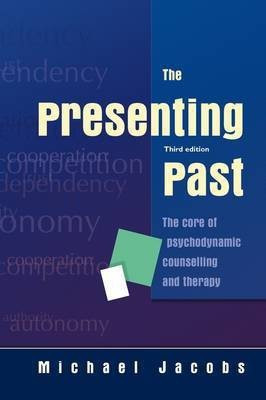The Presenting Past: The core of psychodynamic counselling and therapy(English, Paperback, Jacobs Michael)
Quick Overview
Product Price Comparison
Praise for previous editions: "This book is a wonderfully readable overview of the developmental principles underlying psychodynamic counselling. Theories of Freud, Klein, Winnicott, Kohut and others are organized into three broad developmental themes- dependency, autonomy and interdependence, and illuminated with rich clinical examples. Jacobs' lucid, lively style makes the connection between theory and practice clear and accessible. This outstanding book will appeal to established clinicians as well as students training in counselling and psychotherapy." Jan Grant, Ph.D., Senior Lecturer, Edith Cowan University, Western Australia "Michael Jacobs is a free spirit who roams purposefully in the often contentious world of the rival psychoanalytic traditions." Professor Brian Thorne, Centre for Counselling Studies, University of East Anglia "An original and reliable approach to the development of personality that every therapist and student therapist should possess. Jacobs, one of the founders of psychodynamic therapy and counselling, avoids the twin perils of unimaginative, meaningless causality on the one hand and indifferent, irresponsible reference to fate on the other." Andrew Samuels, Professor of Analytical Psychology, University of Essex The third edition of The Presenting Past maintains its clear approach to the core of psychodynamic counselling by focussing upon three central areas: Trust and attachment Authority and autonomy Cooperation and competitionThese areas are now divided into shorter chapters that have been thoroughly updated in line with recent literature. However, the biggest change is the introduction of more attachment theory. This is part of the evolution of the book and reflects Michael Jacobs' assertion the development of the text reflects "the dynamic part of the term 'psychodynamic'".


